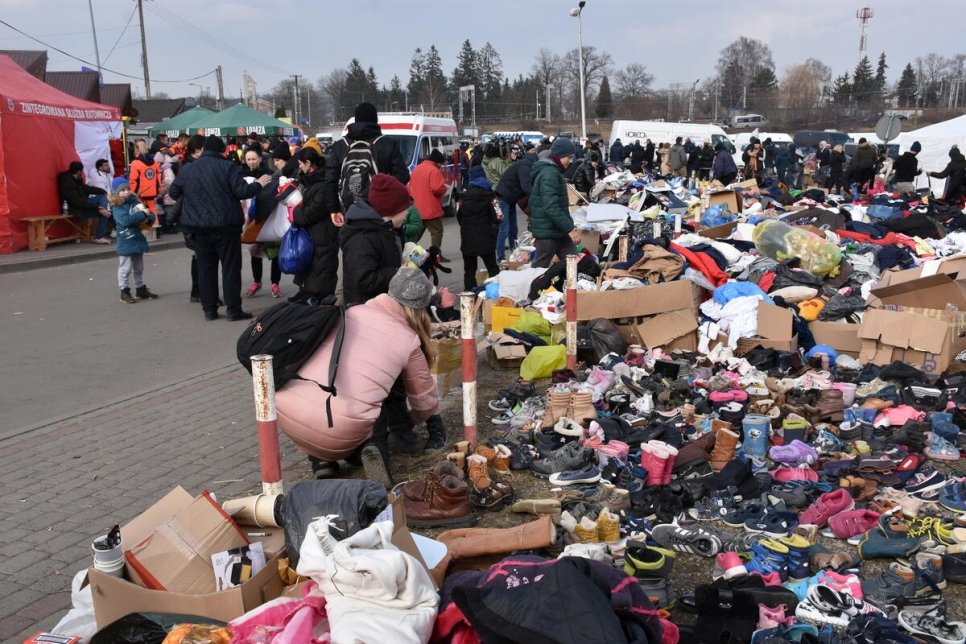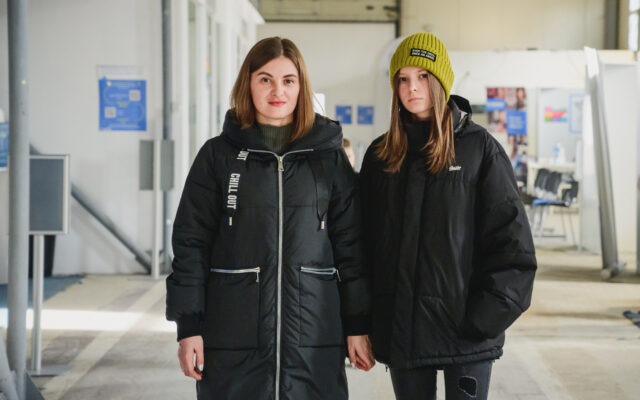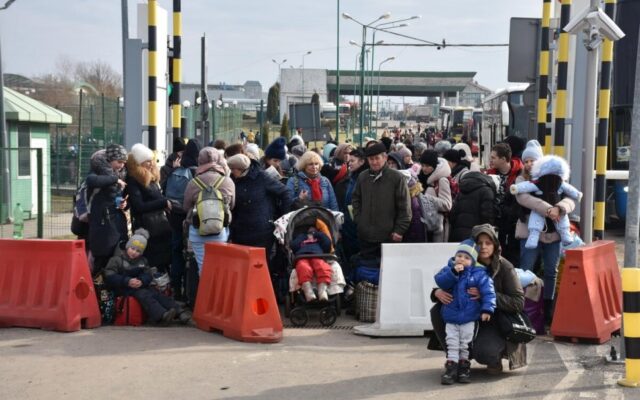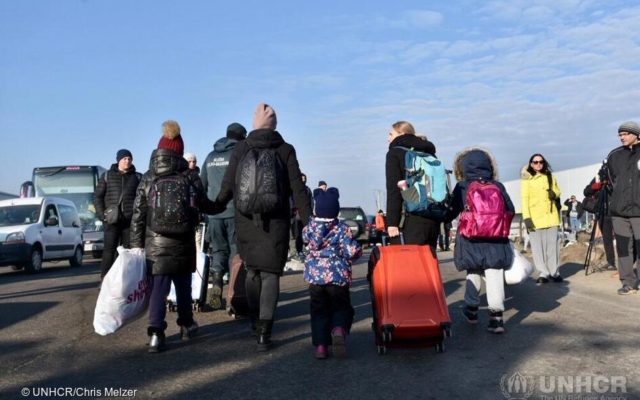People across Poland show solidarity with refugees from Ukraine
From overflowing donation centres near the border to offers of transport and accommodation around the country, Poles offer a warm welcome to people forced to flee.
© UNHCR/Chris Melzer
At a recently opened reception centre in Dorohusk, exhausted-looking groups of mostly women and children arrive on convoys of orange buses bringing refugees from Poland’s nearby border crossing with Ukraine. Many have spent days on the move before finally making it to safety.
In one room sits a pile of toys donated by local residents.
“You are welcome to take something,” a female volunteer says in Polish to a young girl of around five, who understands the sentiment if not the words. She hesitates, weighing the choice carefully, before hugging a green dog to her chest and running off to join her mother.
In just the first week since the start of the military offensive in Ukraine, more than 450,000 people have sought safety in neighbouring Poland, crossing at eight border points between the two countries. The authorities there are registering refugees and providing them with accommodation and assistance, supported by UNHCR, the UN Refugee Agency, which is also providing information and legal assistance, and moving additional relief supplies to a warehouse near the border for distribution.
On top of the efforts of national authorities and humanitarian agencies, Polish citizens and local organisations have also come out in force to support the new arrivals.
Just beyond the border point in Dorohusk, groups of locals offering free rides to some of the many Ukrainian refugees with family links in Poland hold up cardboard signs in Ukrainian asking: “Where do you want to go?”
Near the reception centres, collection points have spontaneously sprung up to receive items being donated by streams of concerned Poles. In just a few days these facilities have been filled with food, water, clothes, sleeping bags, shoes, blankets, nappies and sanitary products for people arriving with only what they can carry.
At another reception centre near the Medyka border crossing, a local nun hands out battery packs and cell phone charging cables to help refugees stay connected. “A man came and put a big bag of these things in my hand. I don’t know exactly how they work, but the refugees here are very grateful,” she said.

Donations from Polish residents are offered to refugees close to the Medyka border crossing. © UNHCR/Chris Melzer
It is not only near Poland’s 500-kilometre border with Ukraine where citizens are keen to show their solidarity with the refugees. A hundred kilometres west in the town of Lublin, a small Red Cross centre is overflowing with donations from people eager to help.
Local resident Barbara arrives with her husband and young son Jan, each carrying bags filled with supplies. “We thought about what people probably need most now,” Barbara explains. “So we bought water, food, blankets and sleeping bags. After all, it is still quite cold.”
As Jan hands over the bag he is holding, his mother says: “We explained to him what is happening. He was so moved by it that he wants to help other children. That’s why he also gave away some of his toys.”
“The solidarity is amazing.”
At the offices of NGO Homo Faber in Lublin, volunteers are taking calls around the clock from residents asking how they can help. “People call and say, for example, that they have vacated a room. The willingness to help is enormous,” says the head of Homo Faber, Anna Dąbrowska.
“The solidarity is amazing,” she continues, pointing to the close ties many feel with Ukraine. “Our two peoples have always had close relations. The most important building in Lublin, the Holy Trinity Church, has a Ukrainian inscription. Of course, we help our neighbours!”
At a nearby Polish Red Cross warehouse in the town, manager Kinga Zielnicka is busy finding room for donations that have flooded in over the past few days. She says her own great-uncle was separated from his Polish family after World War II.
“He grew up in Ukraine, we grew up in Poland, so I have family over there,” Kinga explains, adding that her relatives in Ukraine have also fled their home. “We talk on the phone all the time. Soon they [will] be here.” She looks at the piles of donated items around her and adds: “Maybe my relatives will get some of it too.”
—
To find out more about how you can help Ukraine, please visit our website.
To learn more about the situation in Ukraine, please visit the Ukraine Operations portal.
You can make a donation to help Ukrainian families fleeing conflict here.




